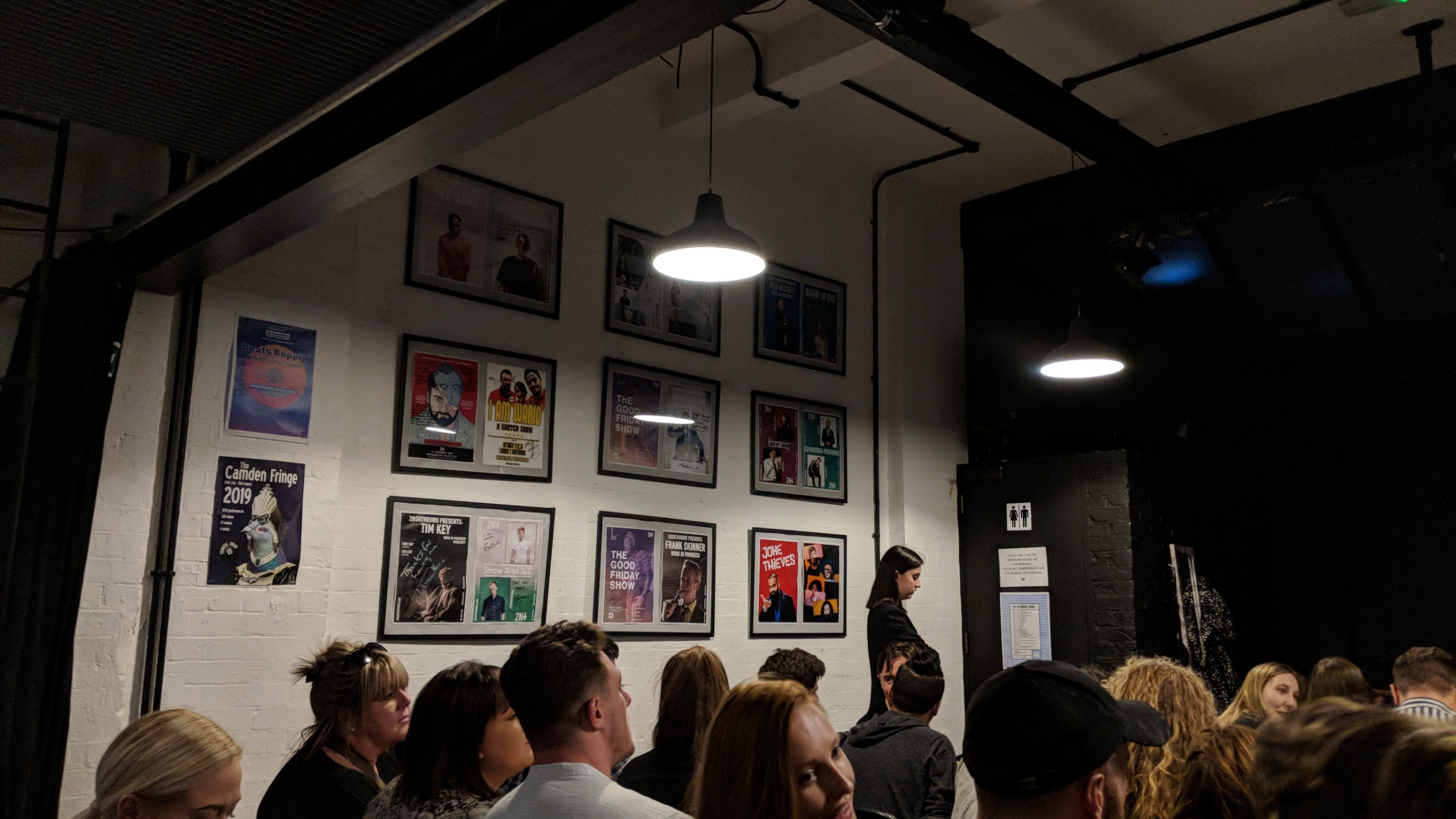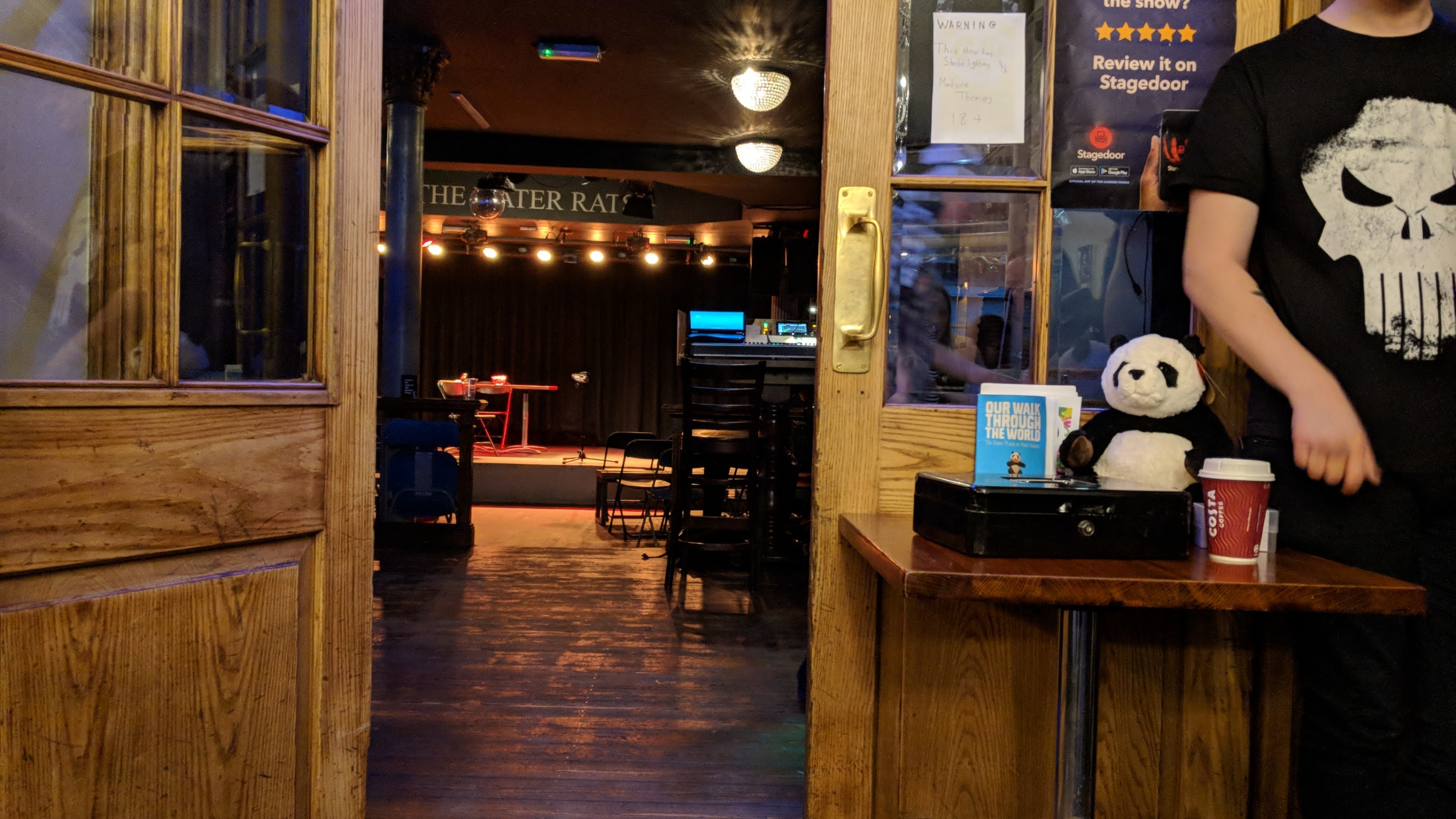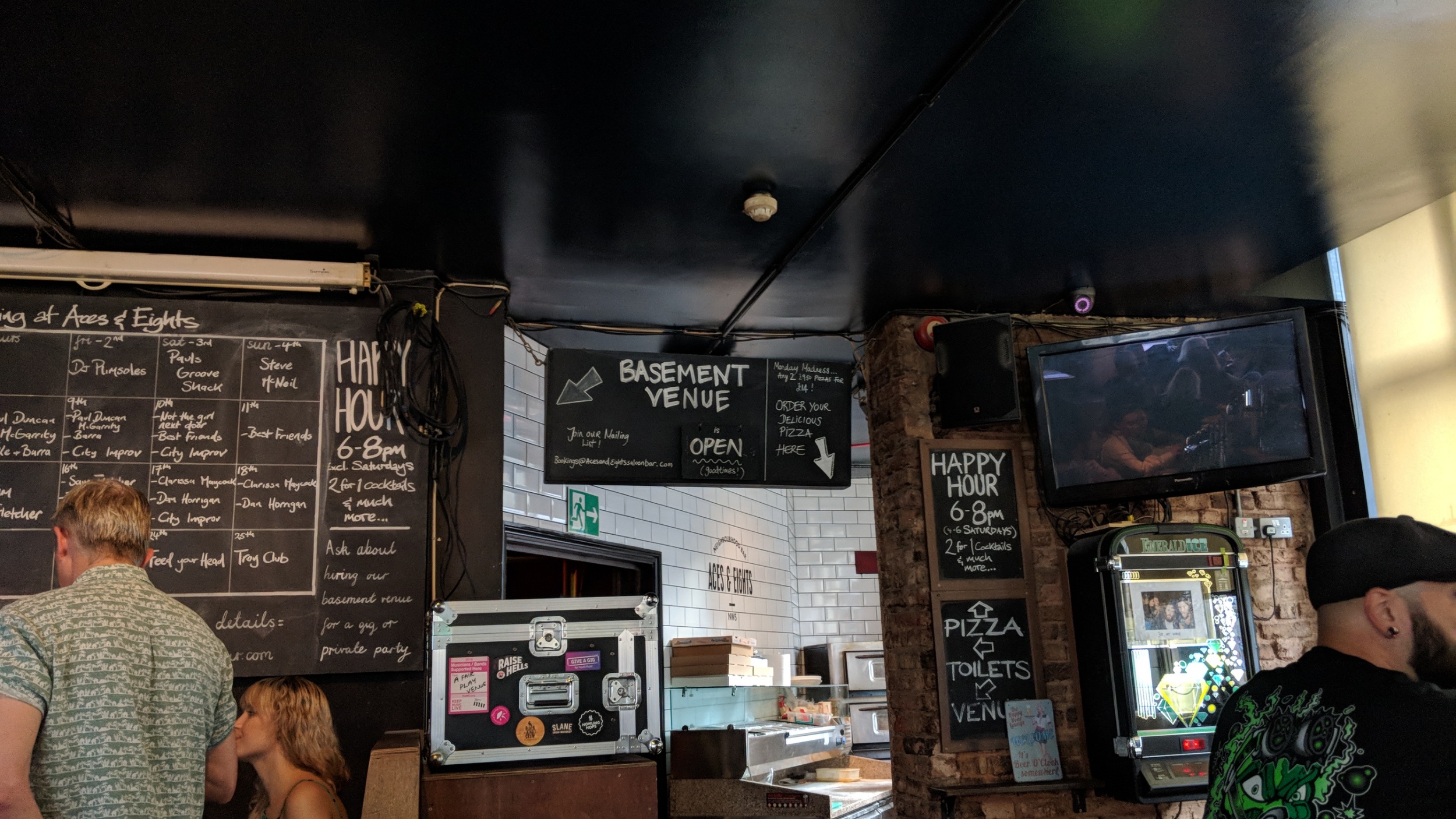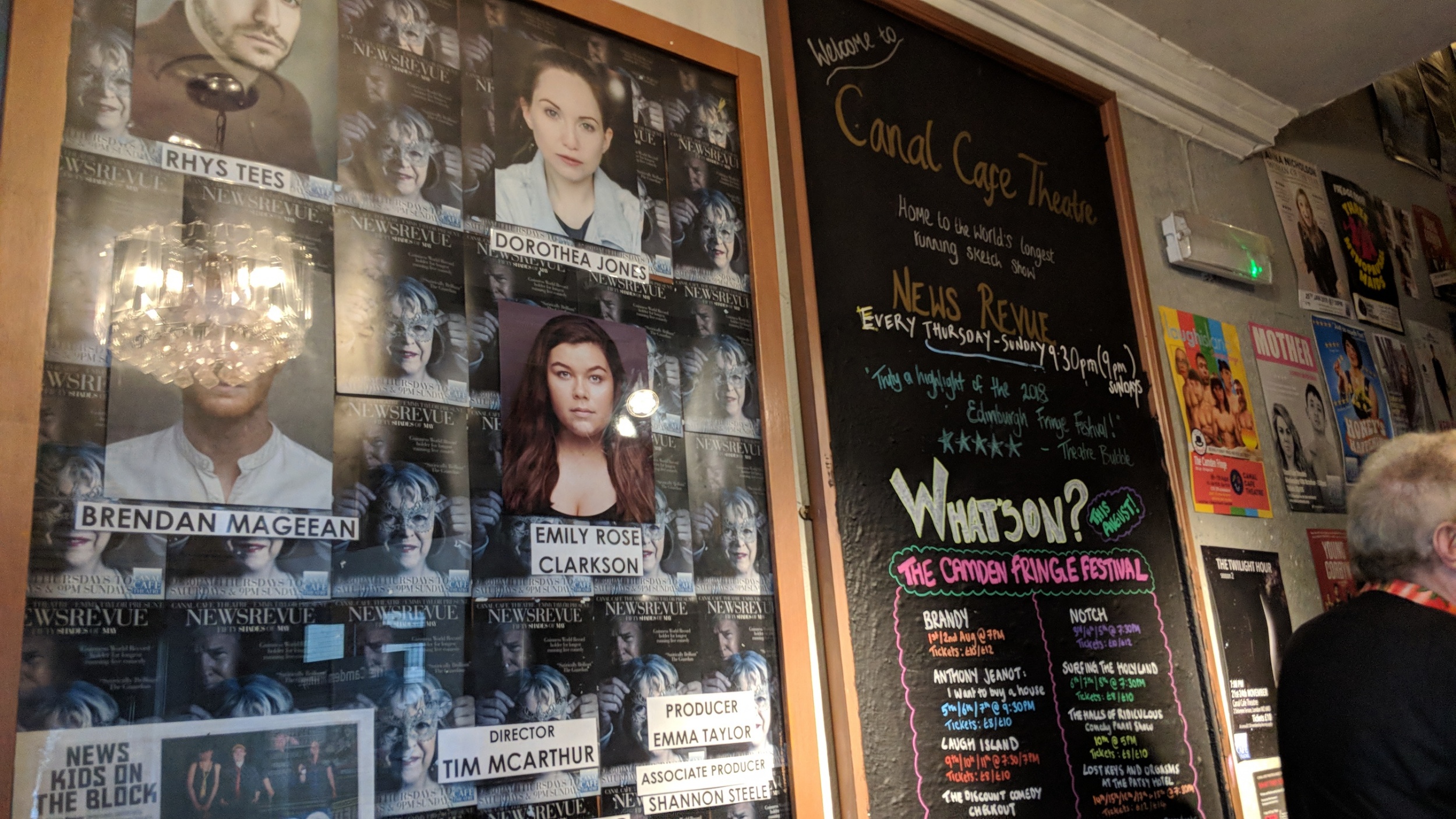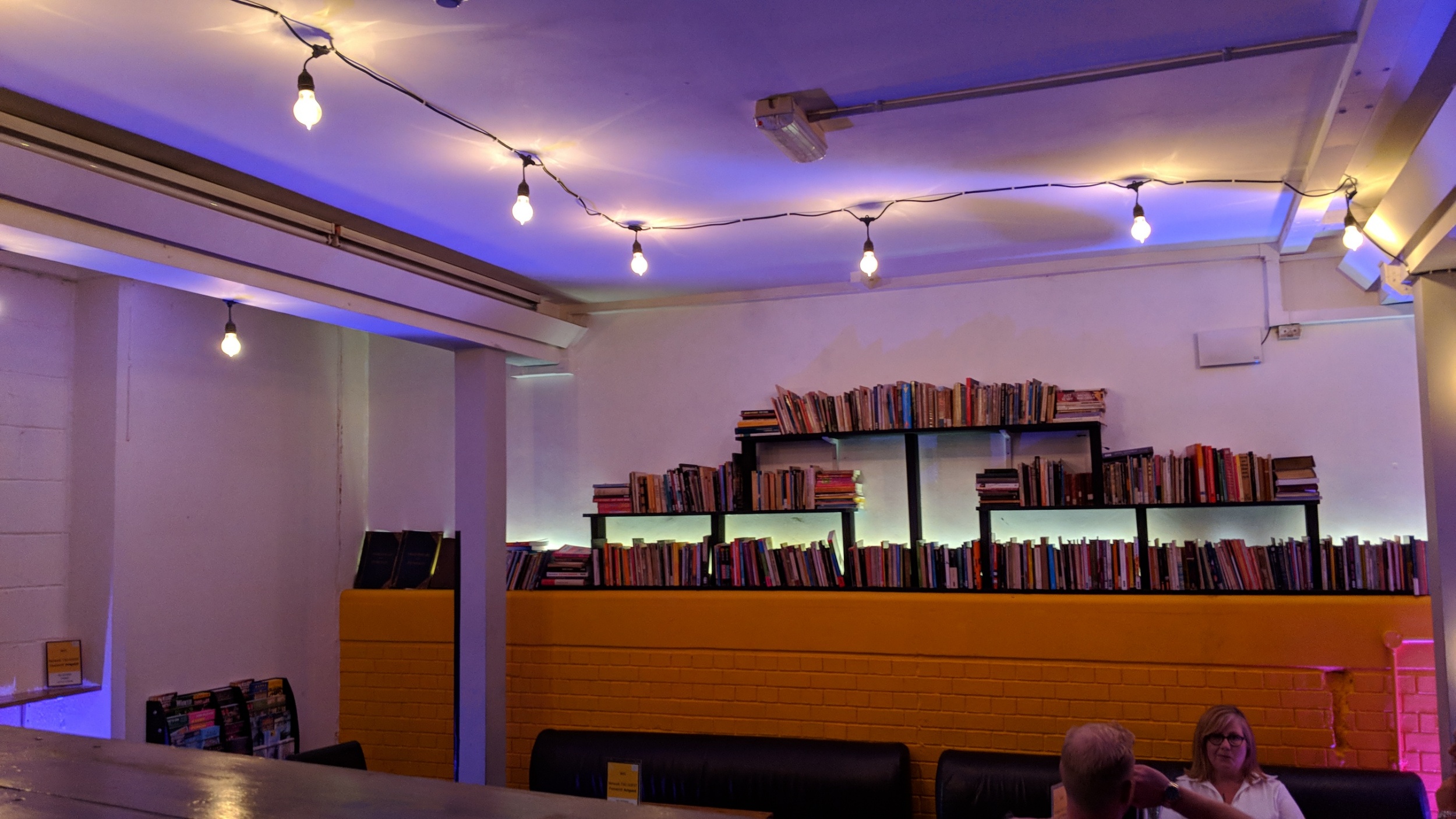I swear, sometimes the theatre gods want nothing more than to mess with me. They like to have their fun, this we know. But even so, I cannot work out how it is remotely amusing for them to block off half the roads around Kings Cross, sending me on wild and twisting diversions all around Coal Drop Yard, when it is 32 frickin degrees outside, just so that they can have me arrive at my theatre for the evening out of breath, red, flustered around the edges, with only three minutes to go before the show is supposed to start…
Ah.
Okay, I see it now.
But even so, it's not very nice of them. Especailly after everything they've put me through this year already.
I thought we'd come to an understanding of sorts. I would visit all the damn theatres, paying my due respect as I go, and they would help me. Or at the very least, not get in my way. I don't know where it went wrong, unless for some reason they don't approve of my methods.
Perhaps they don't like the way I write. All my short sentences and four-letter words.
Oh gawd, it's the swearing, isn't it?
Shit.
Oh well.
No time to think on that. Literally no time.
I burst into the Lord Stanley pub in a heaving ball of sweaty mess.
I look around. It's Sunday night and it looks like the pub is doing a fair amount of business. But this lot are all drinkers. Where are all my theatre people?
Oxygen deprived, I begin to panic, suddenly convinced that I had come to the wrong pub. One final trick of the theatre gods before they seal my marathon in a coffin and send it floating down the Thames, with ninety or so theatres still unvisited.
It's the final day of Camden Fringe. And the Lord Stanley isn't a classic theatre pub. Some improv group or other runs the theatre space upstairs. Chances of me getting in here again before the year is out are slim.
But no, it's okay. People seem to be drift over to the back of the room, driven by an unseen herder.
And there, I see it, the box office. Or, at least, what counts as a box office in places like this. A laptop, propped up on a small ledge.
"Ladies and gentlemen, the show is about to start!" calls out the young man behind the machine.
He's standing beside a doorway, and nailed to the inside is a chalkboard. "Camden Fringe. A Tingle in the Plumbing," it reads.
Looks like I've found The Free Association's Comedy Room.
Finding what little air is left in my lungs, I manage to give my name to the box officer.
"Oh," says a passing woman, stopping in her tracks as she heads towards the door. "Do I need to...?"
"I just need to get you checked off," says the box officer.
"We have old fashioned paper tickets," she says, which sounds deeply unlikely to me. This is Camden Frnge after all.
The box officer looks at me. "You're fine," he says and I leave him to deal with the paper ticket lady.
Through the door I go, and up the creeky, narrow, stairs, twisting my way up and up. There doesn't seem to be any signage, and I am left to follow the echoes of laughter to find my way.
Through another door, and yes, this is it. A small room painted black, but with heavy red curtains blocking out the windows. A large medallion is stuck to one wall, and there seems to be bricks on the other.
Wait, not bricks. They're tiles. The type of tiles that are made to look like mismatched slithers of stone. Those tiles that you find gracing the bathroom walls in the facier end of hotels. I’m not sure what to make of that.
There's a small stage. Two small stages, actually. One on each side. But they have been drafted in for seating purposes. Down each side of the room are two rows of chairs, running up onto the stages on both ends. The chairs are old fashioned. Really old fashioned. The have studs all over them, pinning in the upholstery. They look so old that I'm a little bit nervous about sitting down on one, just in case it crumbles under my weight.
I pick one in the second row. It appears stable enough.
I sit down carefully.
I think we're safe.
I get out my fan and do my best to get some air circulation going in here. It's very hot. Stifling. And my already overheated body is suffering greatly.
There are freesheets on alternate chairs. I pick one up from the seat next to me.
It's nice. Good paper. An A3 folded in half. Artwork on the front. Inside there's a credit list, biographies, and a note from the playwright, which begins by offering a mea culpa that we're only getting three stories tonight, and not the four advertised on the poster. And the front of the freesheet for that matter.
I respect that.
Nothing bugs me more than when an artist wants to change a title in order to fit an updated running order. The title is the title. It's printed on the tickets. It exists. It's in the system.
Own your titles.
I try to read the rest, but it's really hard to balance a freesheet in one hand while flapping a fan in the other.
I need to pick one.
I go with the fan.
A few minutes of dedicated fan-flapping later, I'm feeling a little better.
It's only then that I'm able to take in what's happening in the centre of the room.
Two people crouch on the floor. It's Rebecca Banatvala and David Reed. Playing Jenga.
Playing with one of those oversized sets that I think are sold for garden use, but tend to get most of their air-time at drunken parties.
A woman sitting near me giggles as she watches them.
I'm not sure Jenga is much of a spectator sport, and doesn't particularly lend itself to comedy.
Perhaps she's drunk too.
The room gradually begins to fill up, everyone clutching at their drinks. No one looking bothered or concerned that the show was supposed to be starting shortly.
As the row in front of me is claimed, the Jenga players are hidden from view.
I knew it was coming. I've sat in enough unraked second rows to know that floor-work can't survive it. It does always baffle me though, why directors are so intent on getting their performers down on the ground, when they presumably know the room set up. It's almost like they don't want half the audience to see their work. Perhaps they're embarrassed or something.
Anyway, the music stops. The Jenga pile is smashed.
Reed heads up onto one of the stages were he has a laptop set up.
Banatvala begins the first tale, The Astronaut, in which she's... well, an astronaut. And we, the audience, are all students in a lecture she's giving. She tells us of space, of the adventure, of seeing the earth from the outside, of knowing fully and completely who you want to be and what you want to do in life, and then she tells us about coming back, of motherhood, losing a part of yourself, a part which is never wholly replaced.
Reed steps down off the stage and it's back to the Jenga pile. For some reason. I can't tell what they're doing down there. I focus on keeping my fan going until eventually whatever task they are doing is complete and we can get on with the second tale. The Shopper. This one sees Banatvala as a woman always seeking more. Her parents worked hard, and each birthday saw her gifts growing as did the family's place in the world. And she sees no reason that this should ever stop. She marries well. Their wealth accumulates. She develops her tastes, and her accent. And when children come, she wants more for them too. Unfortunately, one thing you cannot purchase is buy-in from your progeny.
Last up, The Accountant. Reed straps bells to his feet for this, and seats himself on a box, because Banatvala is getting her rap on and she needs a beat. Redundancy has taken this character hard. Or rather, made him hard. Both of the soul and, ummm... delicacy prevents me from completing that thought. I hope my flapping fan and flushed cheeks are not misinterpreted here, because he's out for what he can get, and is determined to get everything. Everything being women.
A man in the front row is drafted in to play Seamus, the hapless partner to one of the accountant's conquests, and made to hear the entire tale in all its sordid detail.
Blackout.
Tale complete.
We applaud the pair of them, our clapping calling them back to the stage for one more set of bows.
Someone comes over to speak to my neighbour.
"It's really hot in here," he breathes.
"It wasn't too bad on this side," she replies.
I put my fan away. Job done I think.
On my way out I pause, seeing the arrangement of Jenga blocks on the floor for the first time. They're laid out carefully. Like a snake. Perhaps hinting at the accountants snake-like traits? I cannot tell you. This tower of direction falls down when the players can't see what's happening at the lower levels.




